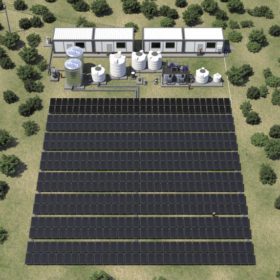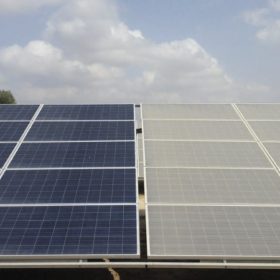The long read: PV in the water-energy-food nexus
Sector coupling may be somewhat of a buzzword, but it also points to opportunities for PV beyond the power markets, which may quickly reach limitations during peak hours of irradiation. Combined energy, food and clean water production presents one such opportunity, with benefits for developers, utilities and communities.
Powering to empower rural India
Smart Power India, a subsidiary of US-based impact investor The Rockefeller Foundation, was established in India in 2015 with the aim of extending power to those without sufficient access to reliable and quality electricity. Jaideep Mukherji, CEO, Smart Power India, speaks to pv magazine about their work in India and way forward.
Tata Cleantech secures US$30-million from UK investor CDC
The investment will enable Tata Cleantech to provide loans for green projects, including e-mobility solutions as well as water and energy efficiency.
Solar system prices to rise – then fall – in 2021, with another record year anticipated
IHS Markit is predicting the world will add 30% more solar capacity this year.
Eden Renewables India secures US$165 million finance for 450 MW solar project
The project, currently under construction in Rajasthan, was won by the developer in a Solar Energy Corporation of India (SECI) auction.
Bangladesh joins hydrogen energy race
The Bangladeshi government has launched a pilot hydrogen production project as part of its effort to reduce the country’s dependency on fossil fuels and accelerate the transition to clean energy.
The long read: Smarter robots to step up to service
On Dec. 1, Tel-Aviv based robotic cleaning provider Ecoppia launched an initial public offering on the Tel Aviv Stock Exchange. In doing so, the seven-year-old solar startup raised $83.8 million from public and institutional investors – although heavily slated toward the latter. Jean Scemama, who joined Ecoppia as CEO in April 2020, says the IPO will allow it to double down on R&D efforts and expand into the provision of services.
The market for off-grid solar refrigeration
Standalone solar-powered refrigerators present a $20 billion opportunity in India for vaccine storage, milk chillers, households, micro enterprises, and cold storage for farm produce, according to a new report by Gogla.
Battery startup Gegadyne Energy raises INR 33.4 crore from V-Guard
The Mumbai-based battery startup develops advanced nano-material composites to enable quick-charging batteries for electric vehicle (EV), industrial storage, and consumer electronics space.
World could add up to 194 GW of solar this year
Falling module prices will help PV post another record year after an estimated 132 GW was installed worldwide in 2020, according to an energy transition investment trends report published by Bloomberg New Energy Finance.















